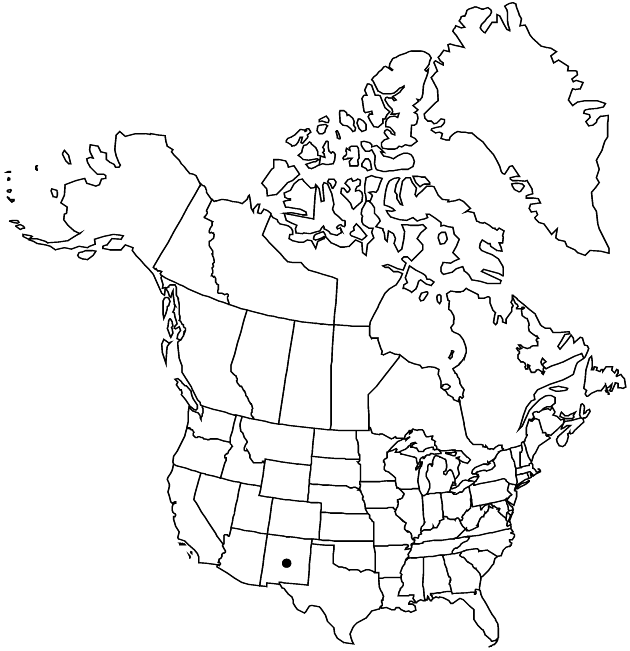Difference between revisions of "Brickellia chenopodina"
Mem. Gray Herb. 1: 99. 1917.
FNA>Volume Importer |
imported>Volume Importer |
||
| (3 intermediate revisions by 2 users not shown) | |||
| Line 6: | Line 6: | ||
|place=1: 99. 1917 | |place=1: 99. 1917 | ||
|year=1917 | |year=1917 | ||
| + | }} | ||
| + | |special_status={{Treatment/ID/Special_status | ||
| + | |code=E | ||
| + | |label=Endemic | ||
| + | }}{{Treatment/ID/Special_status | ||
| + | |code=C | ||
| + | |label=Conservation concern | ||
}} | }} | ||
|basionyms={{Treatment/ID/Basionym | |basionyms={{Treatment/ID/Basionym | ||
|name=Coleosanthus chenopodinus | |name=Coleosanthus chenopodinus | ||
|authority=Greene | |authority=Greene | ||
| + | |rank=species | ||
|publication_title=Contr. U.S. Natl. Herb. | |publication_title=Contr. U.S. Natl. Herb. | ||
|publication_place=16: 177. 1913 | |publication_place=16: 177. 1913 | ||
| Line 38: | Line 46: | ||
-->{{#Taxon: | -->{{#Taxon: | ||
name=Brickellia chenopodina | name=Brickellia chenopodina | ||
| − | |||
|authority=(Greene) B. L. Robinson | |authority=(Greene) B. L. Robinson | ||
|rank=species | |rank=species | ||
| Line 52: | Line 59: | ||
|publication title=Mem. Gray Herb. | |publication title=Mem. Gray Herb. | ||
|publication year=1917 | |publication year=1917 | ||
| − | |special status= | + | |special status=Endemic;Conservation concern |
| − | |source xml=https:// | + | |source xml=https://bitbucket.org/aafc-mbb/fna-data-curation/src/2e0870ddd59836b60bcf96646a41e87ea5a5943a/coarse_grained_fna_xml/V19-20-21/V21_1247.xml |
|tribe=Asteraceae tribe Eupatorieae | |tribe=Asteraceae tribe Eupatorieae | ||
|genus=Brickellia | |genus=Brickellia | ||
Latest revision as of 21:09, 5 November 2020
Perennials, 100–150 cm (bases woody). Stems branched, stipitate-glandular. Leaves alternate; petioles 4–10 mm; blades 3-nerved from bases, rhombic-ovate to lanceolate, 20–50 × 10–40 mm, bases rounded to cuneate, margins entire or irregularly dentate, apices acute, faces glabrous or sparsely gland-dotted. Heads borne singly (terminating lateral branches). Peduncles (leafy) 5–50 mm, stipitate-glandular. Involucres cylindric to campanulate, 8–9 mm. Phyllaries 22–26 in 5–6 series, greenish, often purple-tinged, 3–4-striate, subequal or unequal, margins narrowly scarious; outer lanceolate to lance-ovate (often herbaceous, glandular-hirtellous, equaling or surpassing inner, apices acute to long-attenuate), inner lanceolate to lance-linear (glabrous, apices obtuse to acute). Florets 18–24; corollas pale yellow-green or greenish white, 5–6 mm. Cypselae 2.5–3 mm, strigose; pappi of 30–35 white, smooth or barbellulate bristles. 2n = 18.
Phenology: Flowering Aug–Oct.
Habitat: Near streams, canyon bottoms
Elevation: 1300–1600 m
Discussion
Of conservation concern.
Brickellia chenopodina is known only from Grants County; it is similar in most respects to B. floribunda and may be little more than a shade form of the latter, with which it is sympatric.
Selected References
None.
